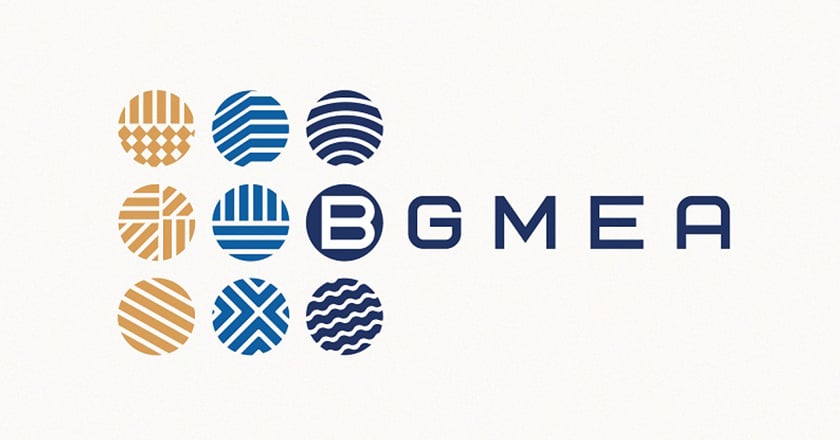News Flash
News Flash

DHAKA, May 21, 2025 (BSS) – The Sammilito Parishad contesting in the upcoming election to the Bangladesh Garment Manufacturers and Exporters Association (BGMEA) today highlighted the importance of apparel diplomacy and exit policy.
Sammilito Parishad panel leader Md Abul Kalam today said they would adopt a two-sided strategy to maintain long-term competitiveness - apparel diplomacy at one hand, and a responsible exit policy on the other hand.
“We have crossed a chapter in the garment industry, the next journey is on the way to a 100 billion dollar industry. Therefore, more caution is needed in this journey,” he said while sharing his panel’s election manifesto at a programme ahead of the BGMEA election.
Kalam said they are facing global policy changes related to business such as increasing production costs, gas-electricity crisis, sustainability, HREDD (Human Rights and Environmental Due Dilligence), CSDDD, Traceability, etc.
“If we can successfully face these challenges, we are on the verge of reaching unique heights,” he said.
Kamal said for such a time they need leadership composed of experience, youth and courage—who are able to work with workers, entrepreneurs, policymakers and international partners with equal skills.
“We have presented a timely panel combining all those skills at your service,” he said.
The biennial election of the BGMEA is scheduled for May 31 and two panels submitted their nomination papers recently to contest the poll.
The two panels are Forum and Sammilito Parishad.
Mahmud Hasan Khan (Babu) earlier submitted his nomination as the panel leader of the Forum.
Former BGMEA President Faruque Hassan submitted the nomination paper on behalf of Sammilito Parishad panel leader Abul Kalam.
Kalam shared twelve broad areas as manifesto of his panel today.
These are SME Support Cell & Policy Advocacy; Utility Security & Alternate Incentive Package; Building the Apparel Workforce of Industry 4.0: Upskilling Mid-Level Managers; Access to Finance: Green Funding Desk and Banking Support; Market and Product Diversification: Expanding Bangladesh’s Reach Beyond Traditional Markets and Beyond Cotton Products; Alternate Incentive Benefit Policy for Post-LDC Competitiveness & Backward Linkage Strengthening; Trade Facilitation & NBR Reform: Bond Access, VAT Simplification, and Regulatory Ease; EPIC – Export Competitiveness, Policy Intelligence Cell & Digital Transformation Center; Social Compliance Enhancement Program – Toward a Unified Code of Conduct; Green Transformation with Business Value: Circularity, Renewable Energy, Decarbonization & Competitive Differentiation; Made in Bangladesh – Premium Edition: Repositioning Bangladesh in the Global Market and Trade Diplomacy & Responsible Exit Policy.
Kalam said they will launch the 'Made in Bangladesh – Premium Edition' branding campaign to reposition Bangladesh from a low-cost manufacturer to a modern, sustainable, and value-driven sourcing destination.
He said this initiative would focus on curated branding assets and storytelling content for premium global buyers, showcasing factories with innovation, ethical practices, and green credentials, supporting members in brand-building—professional photoshoots, catalogs, virtual showrooms, and sustainability profiles, partnering with EPB, embassies, trade bodies, and major events to carry the Bangladesh premium story to the world and promoting categories like high-end knitwear, outerwear, and circular collections through “design-forward” showcases.
To safeguard Bangladesh’s long-term competitiveness in the global apparel market, Kalam said they will pursue a dual approach: proactive trade diplomacy to secure preferential access and expand market reach, and a humane exit policy to support distressed factories in shutting down responsibly, protecting workers, and enabling entrepreneurial recovery.
He laid emphasis on strategic trade diplomacy to secure GSP/GSP+ extensions, post-LDC trade preferences, and duty-free access in key markets (EU, UK, Canada, Japan).
Kalam said they would launch an “Apparel Diplomacy Roadmap” aligned with embassies to promote sourcing, diversification, and foreign investment and establish a buyer accountability mechanism engaging with the Ministry of Commerce, Bangladesh Bank, and embassies abroad.
Diplomatic channels will be used to issue formal notices through Bangladesh’s embassies and high commissions, ensuring financial and reputational consequences for defaulting/non-paying buyers.